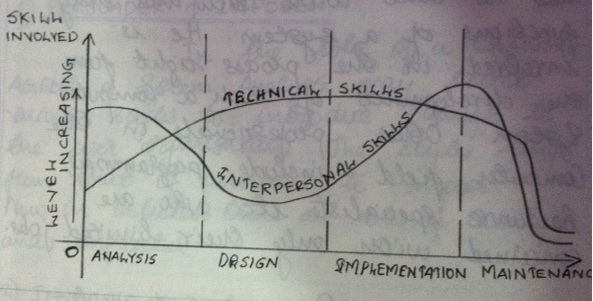Attributes of a Good System Analyst
A system analyst is a person who conducts a methodical study and evaluation of various aspects related to business to identify the desired objectives and work out procedures to attain them.
The system analyst is a person with unique skills – common sense, a structured framework and a disciplined approach to solving problems are a part of the analysis. Therefore the analyst requires a combination of skills, experience, personality and common sense. The fact that a system is designed for a specific user also means that the analyst must have interpersonal skills. The different interpersonal skills that a system analyst should have are as follows –
- Communication Skills – System analyst should have the ability to articulate and speak and knack of working with all levels of managerial positions of the organization.
- Understanding – System analyst should have the ability to identify problems and assess their solution, grasping of company goals and objectives, show sensitivity to the impact of the system on people at work and understanding their problems,
- Teaching & selling ideas – System analyst should have the skill to educate other people in the use of computer systems and selling ideas and promoting innovations in problem solving using computers.
The various TECHNICAL SKILLS that a system analyst should have are as follows –
- Creativity – The analyst should be creative to help the users to model ideas into real plans and developing candidate systems to match user requirements.
- Problem Solving & project management – System analyst should have the skill of problem solving, developing alternative solutions, scheduling, overcome constraints, coordinating team efforts and managing costs and accounts.
- Dynamic interface – System analyst should be a perfect blend of both technical and non-technical skills in functional specifications and general design. He should also have a questioning attitude and inquiring mind.
- Thorough knowledge of computers – System analyst should have the knowledge of basics of computers and business functions.
A graph showing the involvement of interpersonal and technical skills during the system development phase for a good system analyst is shown below –
Now, in addition to these personal qualifications, the system analyst should have proper academic qualifications in system analysis and design or other computer oriented similar degrees.
Below are some other related articles that you might want to read –
- Comparing roles of a System Analyst and other IT professionals
- System Life Cycle – Classical definition
- Software Engineering then and now
- Product Vision – Rule of Thumb – Simplicity
- Personal SWOT Analysis
- UML example
- ERD examples
- DFDs example
- Use Case Building – An example
- Treating product requirements – The ideal way
- Agile / Scrum methodology – Explained simple
- Programming Team Structures
- Software Development Team Structures
- Factors Affecting Software Quality and Developer Productivity
- Managerial Issues of Software Engineering
- Connecting Traditional Water Fall Software Life Cycle Model with Agile Models
- Software Engineering
- Software Engineering then and now
- Project size driving Project risk
- Quality considerations for software projects
